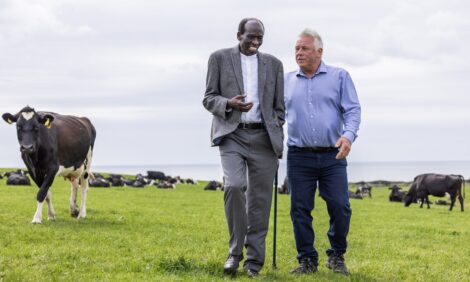



Negotiations on TPP Continue Amid Canadian Concern
US - The US is hosting negotiations over the Trans-Pacific Partnership (TPP) trade agreement in Atlanta, amid concerns from Canadian farmers that it could put their popular supply management system at risk.The Office of the US Trade Representative (USTR) said that negotiators have been making good progress toward resolving the "limited number of outstanding issues" since they last met in July.
Before the negotiations began, the USTR also released a detailed summary of negotiating priorities for the agreement, to try and aid transparency. The TPP has repeatedly been criticised for the secrecy surrounding the negotiations.
“This report is a detailed look at what we are fighting for at the TPP negotiating table to help unlock opportunity for US workers, farmers, and businesses,” said Ambassador Froman.
“This is another in a series of steps this Administration has taken to share information at every step of the TPP negotiating process,” said Chief Transparency Officer Tim Reif. “Through detailed summaries, a robust congressional consultation process, outreach to a more diverse set of stakeholders, and public input on negotiating aims, we continue to build a more open and transparent negotiation process. We are always looking to do more, and appreciate the important steps taken on transparency in the Trade Promotion Authority law.”
Beef farmers seek swift conclusion
"Cattlemen and women have high expectations for the TPP as a true 21st century agreement, eliminating tariff and non-tariff trade barriers across 12 member countries,” said Philip Ellis, the US' National Cattlemen's Beef Association (NCBA) president.
The Association explained that Japan is currently the top export market for US beef, totalling $1.6 billion in 2014, even with a 38.5 per cent tariff rate.
Last year Australia and Japan signed the Japan-Australia Economic Partnership Agreement that phases down the tariff on beef imports over 15 years and removes a 50 per cent snapback tariff on Australian beef.
The Association said that this agreement gives the US' competitor, Australia, an advantage and as a result Australia is taking market share away from US beef.
“This is why agriculture cannot afford to delay action any longer,” said Mr Ellis. “Other nations are actively pursuing individual trade agreements to benefit their producers. The US is already one of the most open markets in the world and if we do not act to expand new market opportunities in these growing economies, our cattle producers will be severely disadvantaged.”
Supply management defended
Canadian farmers took to the streets on Tuesday to demonstrate their concern to leaders in the Parliament area of Ottawa.
Canada's supply management system regulates production and imports of eggs, milk, cheese and poultry meat, protecting Canadian farmers from price fluctuations. However, because it places limits on foreign imports, it is problematic for Canada's involvement in free trade agreements like TPP.
Dairy Farmers of Canada noted that representatives of supply managed sectors were in Atlanta trying to ensure farmers' interests were protected by negotiators.
“Canadian milk is produced according to standards that are among the highest in the world for safety and quality, and it’s because of supply management that these standards are enforced.
“Canadians don’t want to see a new trade agreement threaten that,” said DFC President Wally Smith.
According to local media reports, Prime Minister and Conservative Party Leader Stephen Harper has promised to defend the interests of farmers at the negotiations.
The negotiations take place on 30 September and 1 October between trade ministers, with negotiating officers taking part in extra meetings. There are twelve countries involved in TPP negotiations in total.



